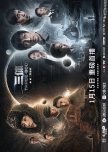
Cette critique peut contenir des spoilers
Character-driven drama with campy humor and titillating romance
Plot Summary:Zheng Shu Yi (Bai Lu) is a pretty, brilliant and hard-working 25-year-old reporter who hopes to write the front-page article of the Financial Vision magazine for at least the 9th time. And her ticket to scoring the latest cover article is to land an interview with the CEO of a venture capital company, 27-year-old Shi Yan (Dylan Wang), who, as it happens, has taken an interest in her, insisting the magazine send her to interview him.
Before that happens, her boyfriend dumps her for a girl surnamed Qin whose uncle owns impressive cars with impressive plate numbers. Having found out that Shi Yan has a niece with a surname of Qin and that he owns a roll royce with an an imposing plate number, Shu Yi concludes that her ex-boyfriend's new girlfriend is the niece of Shi Yan.
Armed with a desire to use her rejection as fuel to succeed in her career as well as with her dream of upgrading the online version of Financial Vision magazine, Shu Yi pursues Shi Yan to get him to agree to a series of interviews for the online magazine. That is, as she makes herself believe. But might she be harboring some other reason for pursuing the handsome aloof bachelor?
For some mysterious reason of his own that will be revealed later, the cold CEO, who would have likely spurned such advances from any other girl, humored Shu Yi. Frequently thrown in each other's company due to the interviews as well as their jobs, they develop a deeper bond that propels them into a rocky journey of growth necessary to bring about a lasting and happy relationship where honesty and effective communication prevail.
Review:
This drama is character-driven thus requires a good understanding of the characters to be thoroughly appreciated. Skipping scenes would jar one's ability to be drawn into the characters and understanding them. In addition, skipping scenes could make one miss the campy spoofing feel throughout the drama, such as Shu Yi's pursuit of Shi Yan, the blind-leading-the-blind attempts of Shu Yi's cocksure but clueless best friend to give her advice, Shi Yan's seeming ability to hear Shu Yi's thoughts which could be a device to show they are on the same wavelengths, the phone conversations that everyone in the room can hear, the phone interruptions, the over-the-top riding clothes and many more. Those who recognize the campy humor in these situations would laugh. Those who don't would grumble.
Therefore, if you skip scenes or don't pay attention to the story, don't blame the writer or director if you can't find, much less understand, the plot.
This drama does not describe characters by having somebody directly point out that, say, Shu Yi is brilliant or that Shi Yan is a visionary. The drama SHOWS the audience, another reason skipping scenes is a no-no.
Shu Yi is not the conventional sensible-can-do-no-wrong cdrama female lead. She is smart, kind, friendly, playful, a good sweet daughter, hard-working, cannot be bribed and stays cool when a conniving work rival plays dirty tricks against her. But having been pampered by her parents, she is spoiled, self-centered and not above using people to attain her goals. Most of all, the drama shows her tendency to lie, causing her to do things contrary to what she feels and to make excuses to avoid facing up to the consequences of inappropriate actions.
It is intentional that Shu Yi sometimes throws ethics to the wind. Those who think smart people never do stupid things have unrealistic expectations of people. A lot of intelligent people make unwise decisions. Shu Yi's ethical lapses are part and parcel of the story which is unique to one particular reporter who does some things she should not do. So, complaints about degrading her profession are terribly misplaced. It is highly improbable that the drama would make viewers think reporters do this sort of thing all the time. In fact, that's why this story is told - it deals with a unique character.
I understand why Bai Lu bravely took on this role. Shu Yi would have been a challenge to portray because not doing her right could have made her obnoxious. I was amused at her flaws, scrapes and outrageousness, indicating Bai Lu portrayed her well.
Shi Yan is another complex character. The viewers' first impression of him is his stoic demeanor which is likely the amalgamation of his reserved and taciturn nature plus his upbringing and grooming to take over a company that would have made him resolute about appearing proper and older than his age at all times. The business scenes show how intelligent, competent and forward-thinking he is by letting us see how he handles meetings with business associates and how he chooses business partners. For example. he concurs with a startup's philosophy to put quality of technology ahead of production. These scenes also show the challenges he faces from senior executives who undermine his capability to lead the company due to his youth and inexperience. To delineate his sincerity in helping startups, the drama shows us that through thick and thin, he stands by a struggling chip producer he has been helping to establish. He gets personally involved in the chip industry and time and again defends his company's stand to finance the startup.
The business scenes also show how compatible the leads are in terms of interests and values. They are both hard-working. Shi Yan's passion to give back to society by helping startups is matched by Shu Yi's passion to make a contribution to society by creating an online version of her company's magazine that would allow more people access to information about finance. They both agree in doing the right things such as when Shi Yan, with Shu Yi's support, refuses to work with a corrupt battery manufacturer.
As he gets to know Shu Yi better, Shi Yan unlocks other parts of his personality - his thoughtfulness and dependability, his gentle and caring nature, his jealousy and his vulnerability that he only shows in her presence. Reserved by nature, Shi Yan's love is shown through his actions - making sure Shu Yi has eaten or has a ride home, even cooking for her. He is a natural nurturer, the best person who can help a spoilt girl in her journey to maturity.
This drama also shows how lack of communication can exacerbate couple issues. This is another hurdle the leads must face and overcome. Those who are intently watching would actually welcome a rift between the leads to knock some sense into Shu Yi. She has a lot of growing up to do and Shi Yan is prepared to take that journey with her as long as she wants to. All he wants is to love her, if she wants that love. What hurts him, more than the thought that she used him, is the thought that she loves another man. He is heartbroken as he muses, "what you wanted was never me". Though it devastates him, he loves her too much to force her to be with him while she is unsure of her feelings. So he lets her go and gives her space and time to sort her feelings out.
One of the things I admire about this drama is how subtle it showed Shu Yi's growth. She was self-centered before she met Shi Yan. She treated her ex-boyfriend like a driver, choosing to do an interview rather than celebrate his birthday with him. When he broke up with her, it was her pride more than her heart that was hurt. Shi Yan's unselfishness must have rubbed off on her. When she received her bonus, the first thing she thought of was to buy her parents gifts. When Shi Yan blocked her, she did not try to make excuses for what she did as what a spoiled child would have done. She felt guilty and remorseful thus felt resigned to losing him. She remembers Shi Yan's loving care and was ready to talk to him in person. When she saw him with another girl, she most probably took that as punishment for what she did and accepted the heartbreak. When news of Shi Yan's shareholders broke out, she first thought of Shi Yan's feelings instead of the effect the news would have on her online magazine. When she finally broke down, she did not care that her fierce work rival was there to witness her anguish. She did not whine or complain about her heartache but got sick due most probably to intense mental and psychological pain.
But the starkest manifestation of Shu Yi's growth was that, when her relationship with Shi Yan stabilized, she stopped lying.
Finally, to complete this multi-dimensional characterization of Shu Yi and Shi Yan, one needs a good idea of the world they're living in. Their friends, families, work, hobbies and other activities provide that additional dimension to their world.
Cet avis était-il utile?

Cette critique peut contenir des spoilers
Underneath the science and math, it's about human frailties destroying mankind or Earth or both
Plot Summary:(In chronological order, as opposed to the sequence of events in the drama)
During the Cultural Revolution in China, a budding astrophysicist witnessed a horrific incident that made her lose hope in humanity. Armed with research data and basic math, she was able to figure out that the Sun may be used to amplify radio signals from Earth to the vast space of the universe. She sent a signal through the Sun that was picked up years later by a pacifist alien who advised her not to answer otherwise his less peace-loving colleagues would conquer her planet. Had she regained enough hope in humanity to heed the warning, thus stop exposing Earth's location to the aliens, or did she still think earth couldn't sort its problems out itself and needs to be saved by an alien civilization?
Several years later, top scientists in China are committing suicide, seemingly due to frustration over failed experiments and the dread that physical laws known to man don't apply to the whole universe after all, thus making their life's work pointless. Might the shooter theory supposing that seemingly universal patterns apply only to limited areas and not the whole universe, actually be true? Might physics really not exist?
A nanomatter expert suddenly starts seeing a number in his line of vision and realizes it's a countdown. Countdown to what? He witnesses the universe seemingly blinking. He is invited to participate in a virtual reality game simulating a planet ravaged by a three-body problem causing its civilizations to get obliterated every now and then, haphazardly, with no pattern in the intervals between chaotic and stable eras. The object of the game is to find the pattern, i.e. solve the 3-body problem.
The failed experiments, the countdown and the winking universe are actually caused by photons sent to earth by an alien civilization, Trisolaris, whose inhabitants have given up on their fight against their 3-body problem and are currently on their 400+ years trek to Earth. The photons are monitoring earthlings' progress, making sure, with the help of humans who have joined Trisolarians' impending invasion, that human technology does not advance far enough to rival or even surpass that of Trisolaris by the time they reach Earth. Thus, they are driving scientists suicidal with frustration by tampering with their experiments. When a scientist agrees to stop his experiments, his countdown stops.
What happens when the countdown goes to zero? Is this when murders that look like suicides happen? Would humans, called bugs by Trisolarians, be able to ward off this threat of an alien invasion? Would they be able to help solve the 3-body problem thus obviate the need for Trisolarians to leave their home planet and invade Earth? Would Trisolarians, who cannot abide lies, be able to work with lying humans?
These and other questions may or may not be answered in this drama but they drive the narrative. It will be noted that this drama is based on the first book, "The Three-Body Problem", of a trilogy written by Chinese author Liu Cixin. So, sequels are likely to follow.
Review:
This is the most engrossing Chinese drama I've watched. It's much better than the Netflix version. Aside from the scientific and mathematical discussions, the issues covered - humans treating other humans and the environment despicably to a point that would raise the question of whether man deserves to continue living in this beautiful planet or not - are presented in such a thought-provoking manner that powerfully draws the viewer in. The production, acting and music create a haunting, mysterious and sinister mood that fits the subject matter.
The story emphasizes the fallacy in the conventional belief that more advanced civilizations are likely to be friendly. In fact, history has shown that advanced civilizations tend to subjugate more primitive ones. This drama made me pray that those searching for extraterrestrial life would be circumspect about letting aliens know Earth's position in the universe, much less invite them in.
This drama also revived my awe at how blessed we are to have such a beautiful planet to live in. In this violent universe, planets are more likely to have uninhabitable conditions similar to Trisolaris than Earth. Yet, how are we handling this blessing? By acting like only certain humans have a right to be here, disregarding how our actions affect other occupants of this planet like humans who look different, other animals, plants, land masses and bodies of water.
Three-body is such a drama that can make viewers feel strongly about our beautiful planet as well as human moral frailties such as cruelty, selfishness, pride and dishonesty that could spell our doom.
Cet avis était-il utile?


 3
3 1
1










